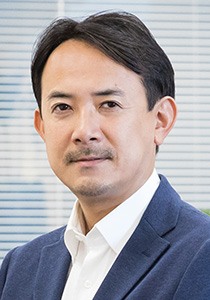
The Road Ahead for Prime Minister Suga
Setting the Plan for a Digital Agency
Politics Economy Society Lifestyle- English
- 日本語
- 简体字
- 繁體字
- Français
- Español
- العربية
- Русский
Public Failures at “Internet Convenience”
TAKENAKA HARUKATA Prime Minister Suga Yoshihide has made establishing a digital agency a priority for his administration. The government launched an office to prepare for “digital transformation” on September 30, 2020, with Hirai Takuya appointed as digital transformation minister.(*1)
In terms of the government’s COVID-19 pandemic response, the public seems deeply disappointed by the confusion surrounding online applications for the special cash payments extended to all residents and the months of delay in receiving these funds, as well as the fact that all the information exchanged by the public health centers has been done by fax.
KAWABE KENTARŌ It’s embarrassing that it took so long to make simple cash payments of 100,000 yen per person. I felt shame personally, because we have worked so hard to bring the convenience of the Internet to Japan, but the public sector remains so painfully behind. We clearly haven’t done enough.
I myself was working from home during the pandemic, and so I talked about this issue myself to many people remotely. I had long felt that the government should be putting a focus on the digitalization issue, but at the time it was more a matter of personal intellectual curiosity.
Then, Prime Minister Suga brought up the issue of a digital agency, and I realized the time had come to make my thoughts on the matter public.
Inoue Masahiro, founder of Yahoo Japan, used to say about manufacturing, “Don’t stick to bad specifications.” I want to offer my experience to make sure we don’t start off with bad planning. At first I thought about making a proposal in conjunction with the Information Technology Federation of Japan (which I serve as Representative Director Chairman), but since it would take so much time, I presented my “Eight Principles for Teleworking” as a private proposal for the Digital Agency.
Eight Principles for Teleworking
Principle 1 Purpose and Vision: The primary purpose of a digital agency should be to promote the wellbeing of people living in Japan. At the very least, it should help free people from cumbersome bureaucracy so they can more easily use their free time the way they want. Second, improved administrative efficiency and data collaboration will help drive economic growth and longevity.
Principle 2 Concept: The digital agency should not become a systems outsourcer for the public sector, meaning other ministries, agencies, and municipalities. Rather, it should serve as the public sector’s CTO and chief architect for the digitalization project. The administration should communicate with each department as it sets budgets and wields authority for key issues in digitalization, and should implement reforms with firm resolve.
Principle 3 Staff: The back end, at the very least, for the overall system should be developed by full-time software engineers working for the agency. Doing otherwise would make ongoing daily updates and improvements too difficult. It will require a review of the makeup and staffing levels of the civil service to increase the number of professional engineers. It would also be best if the secretary came from an engineering background.
Principle 4 System Architecture: Government systems should be loosely coupled, and need a balance between integration and distribution. Essentially, the core of the value provided by the back end should be built using a system or cloud common to the whole public sector. Without this in place, every part of the public sector is digitalizing in a different way, and thus we get the current situation of “digital defeat.”
Principle 5 Laws and Regulations: One of the causes of the current “digital defeat” is tying down our systems with laws. Once a system is made to meet the purpose and vision, and a simple UI designed for the public sector, then these facets can be set into law. This can become a hard solution to the problem of excessive regulation, as long as it is based on the principle of local autonomy. The national administration and local governments should coordinate in a way that preserves the latter’s administrative, system, and data autonomy.
Principle 6 Checks and Balances: In light of the March 2008 Supreme Court ruling on the constitutionality of Juki Net, the network linking Basic Resident Registers nationwide, and in consideration of the wartime regime, the authority and autonomy of the Personal Information Protection Commission should be reinforced to ensure the proper governmental use of centralized public systems and data and to enhance governance over the Digital Agency.
Principle 7 Organizational Culture: Do not fear failure. The key to digitalization is a PDCA cycle including pursuit of overwhelming user experience (convenience), speedy development, and data utilization. Small failures must be expected for continuous improvement in development and use. We must accept failure as the seed of evolution, and society as a whole, including both the media and users themselves, should accept them as well.
Principle 8 Staffing: Revolving door policies. Since the global trend of digitization is being spearheaded by the private sector, staff should be actively recruited from that sector. This means that salaries for all staff, including the bureaucrats, need to be set at private-sector levels to ensure the best staff can be recruited. The revolving door should move quickly to prevent any undue collusion between the public and private sectors. Private-sector involvement should be actively promoted in front end development.
Training Japanese Staff for Back End Development
TAKENAKA Currently, public-sector computer systems are different for each ministry and local public body. Is it actually possible to replace all of those with a unified system?
KAWABE It’s simply better to replace service infrastructure with a common platform so the public sector can operate as a unit. In the future, it will be necessary to loosely couple data systems—linking them without interfering with their independence—that currently only work on individual computers.
Since the digital agency is a government body, any system it uses will have to clear certain security and financial conditions. With the increased development of foreign cloud-based solutions, the number of Japanese engineers who can create back-end systems is falling. I feel like we’re nearing a point where we may not be able to do this with Japanese staff alone in ten years, so this is actually good timing.
Yahoo Japan is putting together its own cloud system right now, and we are finding fewer and fewer Japanese staff who can do the work. I think that the national government should address this issue as it moves forward with its digital policy.
Government Going to Where the Needs Are
KAWABE So, how exactly do we implement a loose coupling where data that fundamentally only works on some computers is useful online? For example, it seems like it would be very convenient to issue copies of jūminhyō, citizen registration certificates, online. However, those aren’t things you get just because you want one. They’re issued at a specific event, like moving, and are required for certain procedures.
If the government could act at the triggering event to create a one-stop solution for the whole procedure, it would be much more convenient for residents. For example, let’s say that a certain municipality puts the procedures for moving on the Internet. Then, a real estate agency could then set up an online service to handle relocation procedures for customers there as a way to set itself apart from the competition.
(Originally published in Japanese. Based on an interview held remotely in November 2020. Banner photo: Z Holdings CEO Kawabe Kentarō. © Z Holdings.)
(*1) ^ On December 25, 2020, the Cabinet approved a basic reform plan to launch a digital agency on September 1, 2021. The agency will be set up as a command center for the creation of a digital society, and is planned to employ 500 people. It will be under the prime minister and headed by a digital minister, a new Cabinet post.
